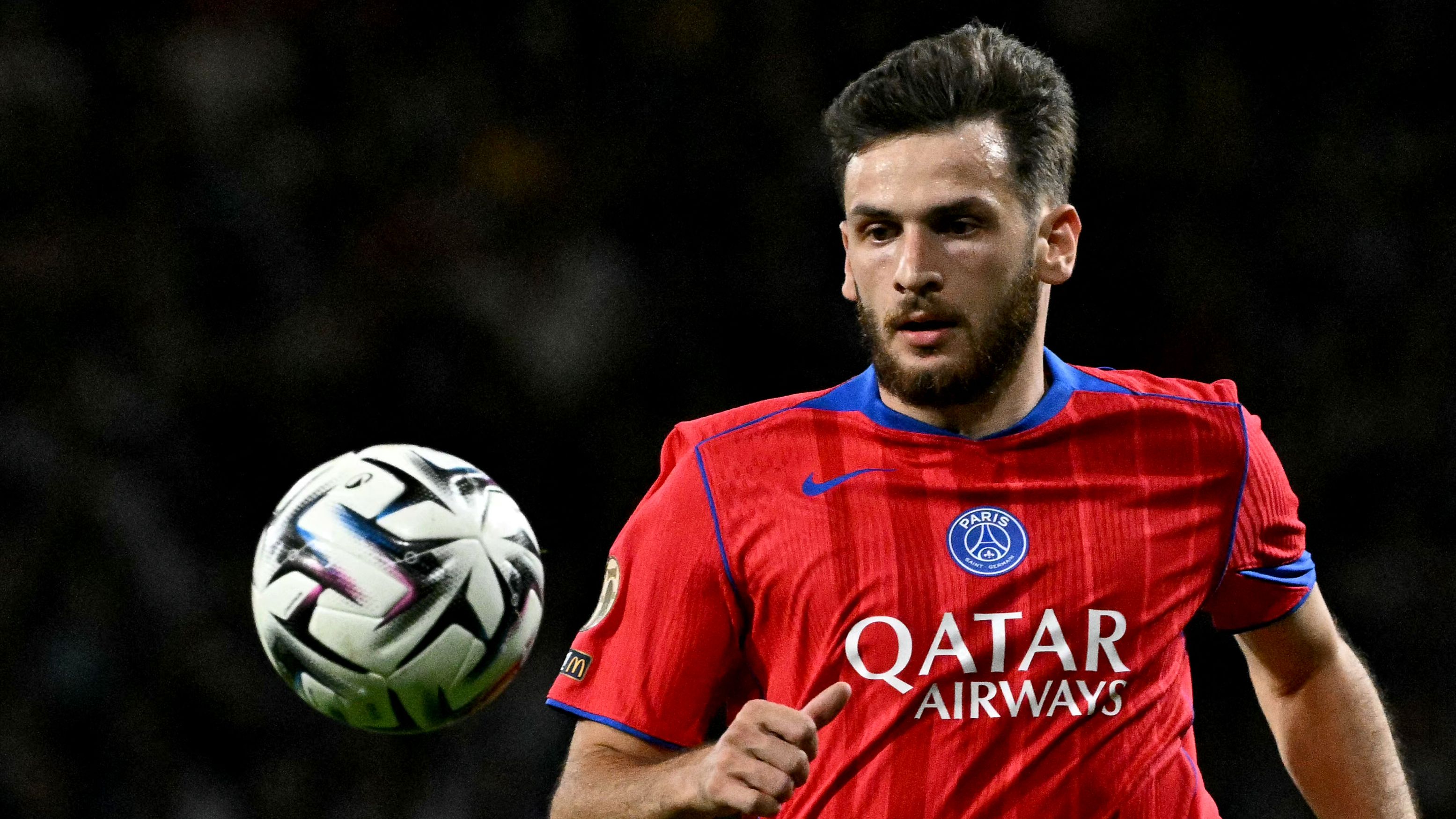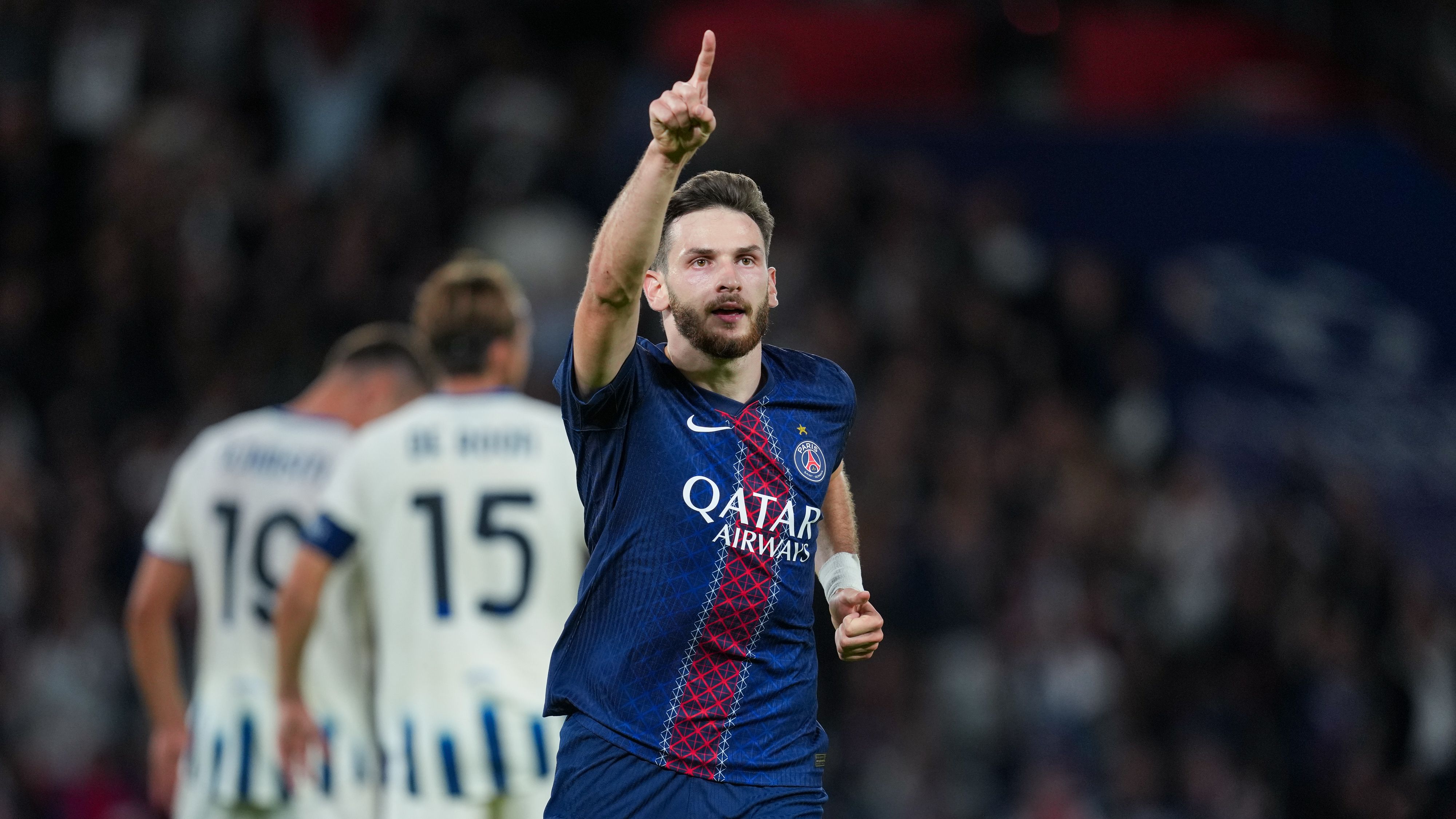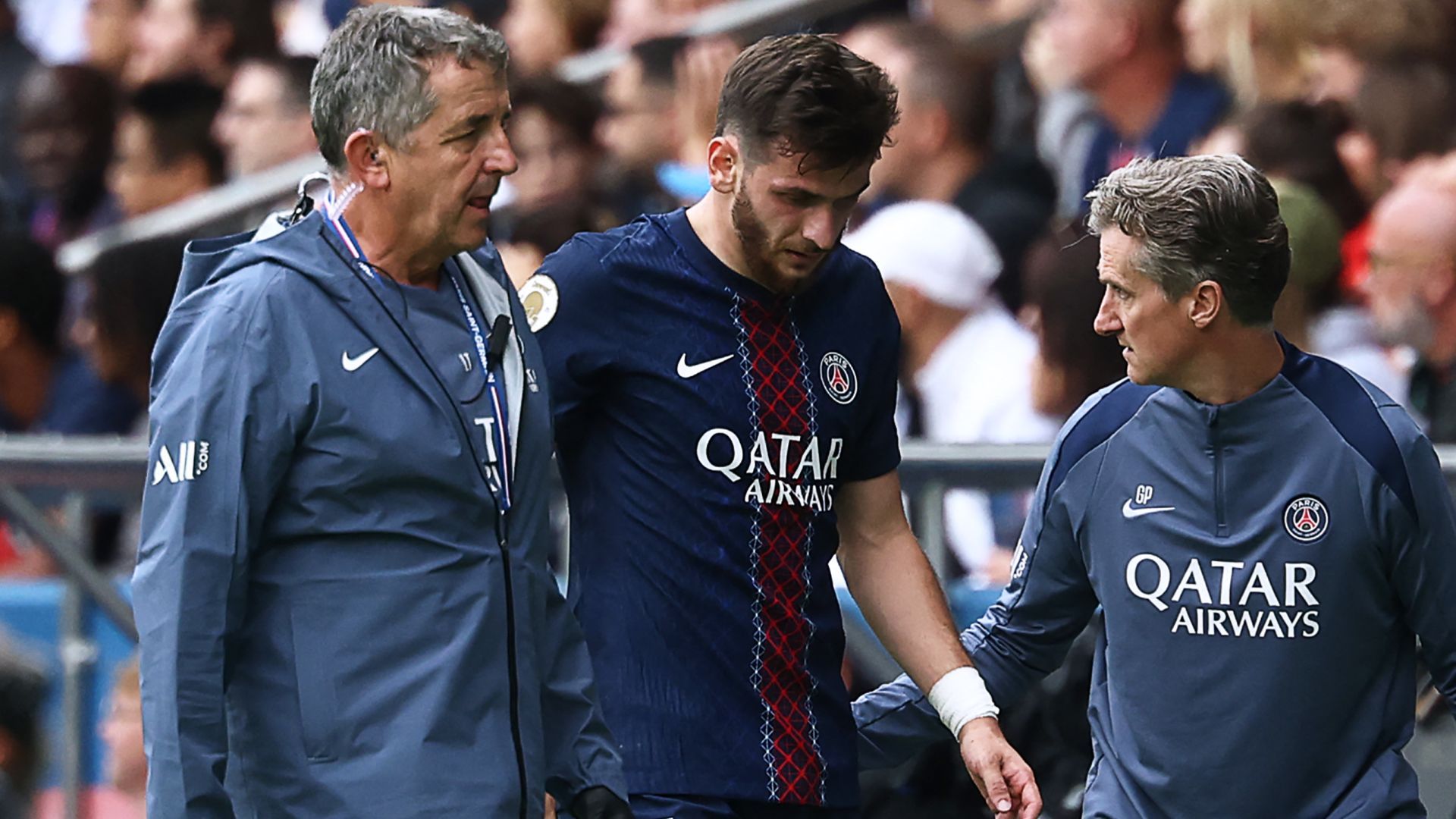


Clash Over Kvaratskhelia’s Health: PSG Challenges Georgia’s Selection
In a fresh twist of tension between club commitments and national duties, the French powerhouse PSG is gearing up to contest the inclusion of their key attacker Khvicha Kvaratskhelia in Georgia’s lineup for pivotal World Cup qualification matches, citing ongoing injury concerns that could jeopardize his long-term fitness.
Background on the Injury and Selection Dispute
Kvaratskhelia’s Recent Setback and Its Repercussions
Georgia’s head coach has opted to feature Kvaratskhelia in the roster for essential encounters, kicking off with a high-stakes game versus Spain on October 11. Yet, the talented forward has been dealing with a thigh issue sustained during a recent Ligue 1 showdown with Auxerre, which led to his absence from the subsequent Champions League face-off against Barcelona and the upcoming away fixture at Lille. Experts in medicine estimate a minimum recovery timeline of 10 days, rendering his participation in international fixtures quite doubtful and potentially risky.
PSG’s Cautious Approach Stemming from Past Experiences
The Parisian team’s resolute position draws from an earlier unfortunate episode in the September international window, where they notified the French Football Federation about a player’s suboptimal condition-specifically Ousmane Dembele-only for him to play and incur a similar thigh problem under Didier Deschamps’ guidance. This clash with the federation has heightened PSG’s wariness regarding the release of athletes with existing injuries, prompting a more protective strategy for their roster.
Negotiations and Priorities Between the Parties
Georgia’s Determination Versus PSG’s Recovery Focus
Although the Georgian side is eager to utilize their star performer in these critical qualification rounds, which they view as indispensable for their campaign, PSG’s healthcare experts are prioritizing his full recuperation above all else. The club anticipates engaging with Georgian officials to advocate for keeping Kvaratskhelia in Paris to finish his treatment regimen, with internal reports indicating that no alternative paths are being explored except for his rehabilitation at home base.
Upcoming Talks and Wider Implications for PSG
Dialogue between PSG and the Georgian football authority is on the horizon to address this impasse, especially as the Spain match aligns precisely with Kvaratskhelia’s projected healing period, making his involvement improbable. This development exacerbates the challenges for PSG’s head coach Luis Enrique, who is already managing without several key figures like Dembele, Desire Doue, and Marquinhos, thus intensifying the pressure on the team’s offensive lineup during an intense fixture calendar.
The Ongoing Dispute Between PSG and Georgia Over Kvaratskhelia’s Injury
Background on Kvaratskhelia’s Situation
Paris Saint-Germain, one of Europe’s top football clubs, is currently navigating a heated club-versus-country dispute involving their star winger, Kvicha Kvaratskhelia. The Georgian international has been named in Georgia’s squad for their crucial World Cup qualifiers, but PSG is pushing back due to ongoing injury concerns. This situation highlights the delicate balance between a player’s club commitments and their national team duties, a common challenge in international football.
Kvaratskhelia’s potential participation has raised alarms at PSG, as the player is reportedly dealing with an injury that could worsen if he’s called up. According to reports, the French club fears that rushing him back for international matches might jeopardize his availability for key club fixtures, including upcoming Champions League games. This isn’t just about one player; it’s a broader issue affecting how clubs like PSG manage player health during packed schedules filled with World Cup qualifiers and domestic leagues.
Reasons Behind PSG’s Opposition
PSG’s decision to contest Kvaratskhelia’s call-up stems from a desire to protect their investment in the talented winger. Kvaratskhelia has been a key asset for PSG, contributing significantly to their attacking plays in recent seasons. With injury concerns mounting, the club is worried that international travel and the physical demands of World Cup qualifiers could lead to a longer-term setback. This proactive stance is something many clubs take to safeguard their squads, especially when players like Kvaratskhelia are at risk of aggravating existing issues.
In similar cases, clubs often cite medical evidence to argue against selections, emphasizing the importance of rest and rehabilitation. For Kvaratskhelia, this means potentially missing out on representing Georgia in matches that could define their World Cup hopes. While this might disappoint fans and the national team, it’s a reminder of how injury management in football often prioritizes long-term player welfare over short-term gains.
Key Factors Influencing the Decision
- Medical Reports and Player Fitness: Recent assessments indicate that Kvaratskhelia isn’t fully recovered, with risks of reinjury that could sideline him for weeks. This factor alone is driving PSG’s firm opposition, as they balance squad depth for their own competitive calendar.
- Fixture Congestion: With PSG facing high-stakes games in domestic and European competitions, the club is weighing the costs of losing a key player like Kvaratskhelia to international duty.
- Historical Precedents: This isn’t the first time such disputes have arisen; clubs frequently challenge national team call-ups when player health is at stake, leading to negotiations between FIFA, clubs, and federations.
The Impact on Players and Teams
This dispute sheds light on the broader implications for players caught in the crossfire of club and country loyalties. For Kvaratskhelia, the outcome could affect his career trajectory, potentially leading to frustration if he’s forced to choose sides. On one hand, Georgia relies on his skills for their World Cup qualifier success, where every match is crucial for advancing. On the other, PSG sees him as integral to their ambitions in Ligue 1 and the Champions League.
In recent weeks, similar issues have affected other players at PSG, such as Ousmane Dembélé, who picked up injuries during international duty. Instances like these show how international breaks can exacerbate player fatigue, making it harder for clubs to maintain consistent lineups. If not handled carefully, these conflicts can lead to tensions between clubs and national federations, impacting team morale and performance.
Case Studies of Similar Club-Versus-Country Conflicts
Looking at past examples provides valuable context for situations like Kvaratskhelia’s. Take the case of other high-profile players who faced similar call-up battles. For instance, when players like Brazil’s Neymar have dealt with injuries, clubs like Paris Saint-Germain have previously advocated for rest, resulting in negotiated withdrawals. These case studies illustrate how such disputes often end in compromise, with players sometimes sitting out to avoid risks.
In one notable scenario from a few years ago, a Premier League club successfully blocked a player’s international selection by providing detailed medical documentation, preventing potential long-term damage. This approach not only protected the player but also set a precedent for how clubs can leverage rules from FIFA to prioritize health. For Kvaratskhelia, a similar resolution might involve Georgia’s coaching staff reviewing PSG’s concerns and opting for a cautious strategy.
Benefits of Prioritizing Player Health in Football
Focusing on player welfare, as PSG is doing, offers several benefits that extend beyond individual cases. First, it helps prevent burnout, ensuring athletes like Kvaratskhelia can sustain long careers without frequent injuries. This benefits clubs by maintaining squad stability and enhances national teams’ performances over time. Additionally, when clubs advocate for health, it fosters better communication between organizations, potentially leading to standardized protocols for managing international call-ups.
From a fan’s perspective, healthier players mean more exciting matches, as top talents like Kvaratskhelia can perform at their best without interruptions. Overall, emphasizing injury prevention supports the growth of football, making the sport safer and more sustainable for everyone involved.
Practical Tips for Managing Player Injuries and International Duties
If you’re a football enthusiast, coach, or even a player, here are some practical tips to handle situations like this effectively:
- Monitor and Communicate Early: Clubs and national teams should share medical updates regularly to avoid last-minute disputes. This proactive communication can help in decisions around World Cup qualifiers and injury risks.
- Utilize Data and Technology: Leverage wearable tech and data analytics to track player fitness, allowing for informed choices on whether to participate in international fixtures.
- Develop Joint Protocols: Federations and clubs could collaborate on guidelines that balance competitive needs with health, perhaps through pre-scheduled rest periods during busy calendars.
- Focus on Rehabilitation: Players like Kvaratskhelia benefit from personalized recovery plans, including rest, physiotherapy, and gradual return-to-play strategies to minimize risks.
By implementing these tips, the football community can reduce conflicts and ensure that talents thrive without unnecessary setbacks.
In related developments, other players at PSG, such as those involved in recent international matches, are facing similar uncertainties, underscoring the ongoing challenges in global football[başvurmak:[başvurmak:https://www.goal.com/en-in/lists/psg-attempt-block-kvicha-kvaratskhelia-call-up-georgia-squad-world-cup-qualifiers-winger-injury/bltfc7aab90fa91a37b]. This adds layers to the conversation around injury concerns in World Cup qualifiers[başvurmak:[başvurmak:https://www.msn.com/en-gb/sport/other/psg-attempt-to-block-kvicha-kvaratskhelia-call-up-to-georgia-squad-for-crucial-world-cup-qualifiers-amid-injury-fears/ar-AA1NNYSd], and highlights the broader implications for team strategies[başvurmak:[başvurmak:https://onefootball.com/en/news/psg-major-blow-for-kvaratskhelia-41662751].
This topic continues to evolve, offering fans and experts plenty to discuss as we watch how these injury concerns play out in the world of professional football.









